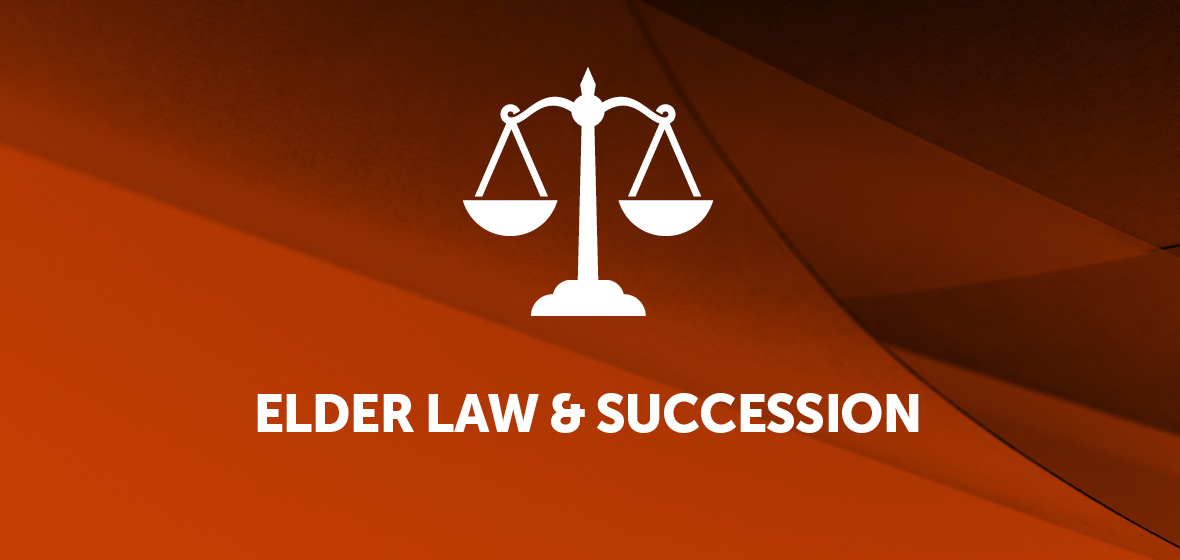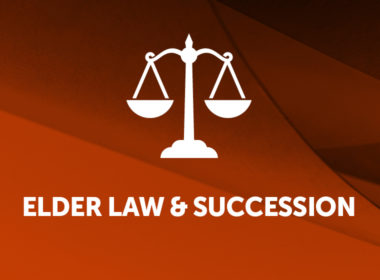Key decisions
- NKT [2021] NSWCATGD 31
- JPD as Guardian v DMS as Trustee [2022] QSC 181
- Dybac v Czerwaniw; The Estate of the Late Apolonia Czerwaniw [2022] NSWSC 1279
- Re Leopold; Application by Gasbarro and Roache [2022] VSC 579
- Ross v Sebek [2022] NSWSC 1300
- Daley v Donaldson [2022] NSWCA 96
- Re Curtis [2022] VSC 621
Concern about role of solicitor
In July 2018, NKT appointed two of her three children, QAT and NYT, as her joint and several enduring guardians and attorneys. NKT’s husband died on 16 October 2019. Between October 2019 to July 2020, virtually all of NKT’s assets were transferred into the name of her son, QAT. This included the family home (subject to NKT retaining certain rights), and over $500,000 in savings and proceeds of shares. In relation to the family home, a solicitor acted for NKT and QAT in drawing up a deed whereby NKT transferred the family home, valued at $625,000, to QAT subject to her having a right to live in the property until she and QAT agreed that she should move to his house due to a deterioration in her health or until she needed care in an aged care facility. QAT agreed to ‘care for and look after the health and well-being’ of NKT for the rest of her life (at [12]).
There was no provision in relation to the fees which may be payable if NKT needed to move into an aged care facility, but the solicitor said she had told QAT that he needed to be responsible for this but she had overlooked putting it in the deed.
The solicitor explained the transaction on the basis that QAT was the only one his mother trusted. It was in accordance with old Macedonian custom for the eldest son to stay with his parents and it was not unusual in Australia for Macedonian people to sign over their assets to their eldest son. Another solicitor of Macedonian heritage gave evidence that he did not agree that it was in accordance with Macedonian culture to transfer a person’s home to their son during their lifetime.
The tribunal observed that there were legal issues about whether NKT had capacity for the home transfer deed and cash gifts to QAT; whether these transactions were brought about by unconscionable bargaining or undue influence; whether relief could be sought under the Contracts Review Act 1980 (NSW) in relation to the home transfer deed; whether a transfer of $159,000 involved a breach of QAT’s role as attorney; and whether QAT’s conflicting evidence in relation to whether money was his or his mother’s gave rise to a legal claim for it to be returned into her name (NKT [2021] NSWCATGD 31 at [113]).
The tribunal felt ‘there was a clear argument for appointing a financial manager who could consider legal negotiations or proceedings with a view to securing NKT’s financial situation and future’ (at [121]).
NKT had negative views about her other children and positive views of QAT (at [122]). Nevertheless, the tribunal ‘decided that the extent of money and property that has been transferred to QAT, the very limited money and property rights that this left with NKT and the existence of at least unconscionable bargaining as a legal avenue that can be explored, meant that it was in NKT’s best interests that we make a financial management order’ (at [126]).
Trust dispute from trustee’s failure to consult minor beneficiaries’ guardian
The mother’s will had the effect of allowing the creation of a minors’ trust fund to hold the mother’s superannuation benefits on trust for her four children as beneficiaries. After the mother’s death, the children lived with the father, their sole living parent. The trustee was a good friend of the mother, who was divorced from their father. The trustee had a low opinion of the father, who had no wealth and was not in paid employment.
The father wanted to relocate the children from Cairns to Brisbane to further their education. He sought the assistance of the trustee to finance the relocation. The trustee declined to do so. The father sought the removal of the trustee.
Pursuant to the terms of the testamentary trust, the trustee had an absolute discretion in relation to exercising her powers to apply the trust funds. The Court observed that the discretion must be exercised for ‘the benefit’ of the beneficiaries (at [27]). ‘That requirement does not impose a general obligation on a trustee to consult beneficiaries or their guardians, to ascertain their views. However, the trustee’s broad discretion must be exercised in a proper way, by reference to proper considerations, so that in some cases consultation may be appropriate in order to give proper consideration to what is for the benefit of the beneficiaries’ (JPD as Guardian v DMS as Trustee [2022] QSC 181 (Henry J) at [27]).
Relevant considerations in deciding the benefit of beneficiaries ‘include the substantial value of assets held on trust for them, relative to the father’s poor financial capacity, and the well-known importance of raising properly educated children in a secure, nurturing home environment… [In these circumstances], the welfare of the children requires that the trustee contribute trust assets to substantially fund the provision of a family home for them and substantially fund the costs of their day-to-day living and education… a trustee must not merely give effect, without more, to the wishes of the settlor and must consider the instant exercise of the power, which is for the trustee to decide to make’ (at [39]-[40]).
The Court stated that ‘The trustee places no genuine weight on the importance of [the father’s] position in the children’s lives and does not try to consult him adequately. She sees herself as righteously pursuing a protective influence over the children’s lives on behalf of the children’s dead mother. The well-intentioned result is conduct which overlooks the importance to the children’s present and future interests of them being raised in a family with a secure sense of its own autonomy. Matters have reached the extraordinary point that the trustee has used her control of the trust fund to effectively control what city the family should live in, contrary to its wishes. The Court’s intervention is required’ (at [2]-[3]). The Court replaced the trustee with an independent solicitor.


